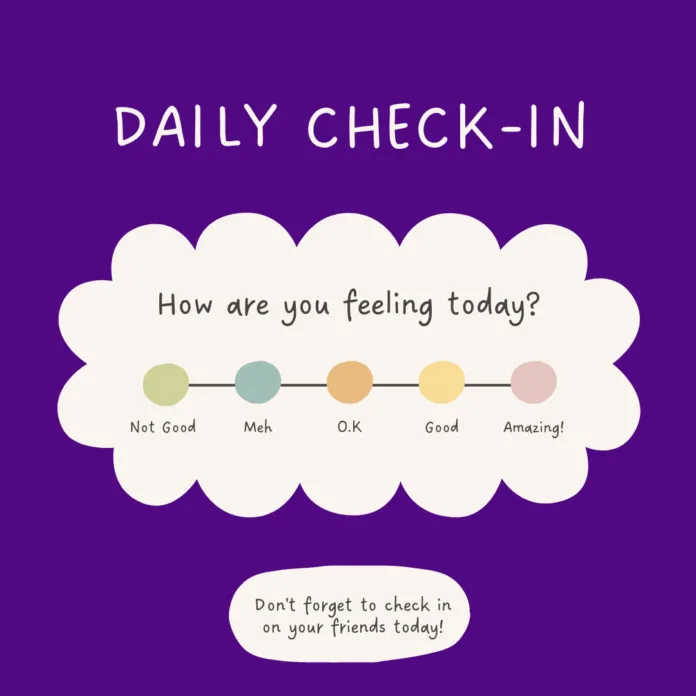Communication tools have evolved from simple phone calls to AI-powered chatbots, encrypted messaging apps, and on-demand video consultations. Yet the fundamental human need behind those technologies remains unchanged: we feel better, think clearer, and cope more effectively when we share our struggles out loud. This article examines why conversation matters, how modern tech amplifies its impact, and what practical steps you can take today to harness that power for yourself or your team.
Why Conversation Is a Game-Changer
1. A Catalyst for Emotional Clarity
Speaking thoughts aloud forces us to organise swirling emotions into coherent sentences, providing instant mental health communication benefits. Neuroscientists note that naming feelings lowers activity in the brain’s threat centre and raises problem-solving capacity in the prefrontal cortex.
2. The Biology of Being Heard
When someone listens empathetically, your brain releases oxytocin, the “bonding” hormone, which helps reduce cortisol, the primary stress hormone. That biochemical shift underpins the measurable benefits of open dialogue—lower blood pressure, improved sleep, and boosted immune response.
3. Breaking the Isolation Loop
Depression and anxiety thrive in silence. By overcoming isolation through conversation, you disrupt negative thought spirals, invite alternative perspectives, and feel less alone in your experiences.
Technology’s Role in Amplifying Supportive Conversations
Secure Messaging Platforms
End-to-end encrypted apps give users privacy to share sensitive feelings without fear of data leaks, encouraging more honest, supportive conversations among friends, family, or peer groups.
Tele-therapy & Video Calls
High-definition video enables therapists to observe non-verbal cues once only possible in person. Cloud-based scheduling systems remove travel barriers, making seeking help talking as easy as opening a laptop.
AI-Powered Chatbots
While not a replacement for qualified professionals, sentiment-aware chatbots offer 24/7 check-ins, mood tracking, and resource referrals—bridging critical gaps for those hesitant to confide in humans.
Community Forums & Social Audio
Live audio rooms and moderated forums cultivate real-time dialogue among individuals with shared challenges—from new-parent anxiety to remote-work burnout—further amplifying the Power of Talking to Someone across continents.
Practical Steps to Harness the Power
Schedule “Voice Time”
Replace a daily text exchange with a five-minute voice note or quick call. Hearing tone and pacing conveys empathy better than emoji.Use Tech with Intent
Choose platforms offering confidentiality and ease of use. Disable read-receipts if they create pressure, enabling more authentic mental health communication.Adopt Structured Sharing
Problem: State the issue in one sentence.
Emotion: Identify the core feeling.
Need: Describe what would help (advice, validation, or just listening).
This framework prevents conversations from derailing and maximises the benefits of open dialogue.
Create Peer-Support Channels
Within a workplace chat app, establish an opt-in “Well-Being Lounge” for informal check-ins. Encourage anonymity options for those wary of stigma.Combine Sync & Async Options
Offer both real-time (video calls) and asynchronous (journaling apps that share entries with mentors) methods so individuals can seek help talking on their own terms.
Addressing Common Barriers
| Barrier | Tech-Enabled Solution |
|---|---|
| Stigma | Anonymous avatars in audio rooms or VR meet-ups reduce fear of judgment. |
| Time Zones | Asynchronous voice notes keep global teams connected without scheduling headaches. |
| Privacy | Zero-knowledge encryption and self-destructing messages protect sensitive data. |
| Cost | Freemium mental-health apps and community peer groups lower financial entry points. |
Measuring Impact in a Digital Workspace
Pulse Surveys: Quick, anonymous check-ins every fortnight track mood trends.
Sentiment Analysis Dashboards: Aggregated, de-identified data from chat channels highlight stress hotspots.
Engagement Metrics: Rising participation in well-being forums indicates growing comfort with supportive conversations.
Companies that actively cultivate dialogue see tangible results—reduced absenteeism, higher innovation scores, and stronger retention—demonstrating that the Power of Talking to Someone pays dividends beyond personal wellness.
The Road Ahead: Conversational AI Meets Empathy
Emerging large-language-model companions will soon detect emotional nuance in speech patterns, offering personalised coping strategies backed by evidence-based psychology. When combined with human oversight, these systems promise to extend quality mental-health care to millions currently underserved.
However, technology must remain a facilitator—not a substitute—for genuine human connection. Ethical safeguards, diverse training data, and clear escalation paths to professional help will ensure AI amplifies, rather than dilutes, the profound impact of speaking to another person.
Conclusion
The Power of Talking to Someone is a timeless human truth now supercharged by modern technology. Whether through encrypted messages, tele-therapy, or AI chat companions, conversation dismantles isolation, clarifies emotions, and fosters resilience. By integrating secure, user-friendly tools into daily routines, individuals and organisations alike can unlock the full potential of mental health communication, reaping the profound benefits of open dialogue and building communities where no voice struggles alone.
Take a deliberate step today: send that voice note, schedule that video call, or join that support forum. Your future self—and perhaps someone else’s—will thank you.
